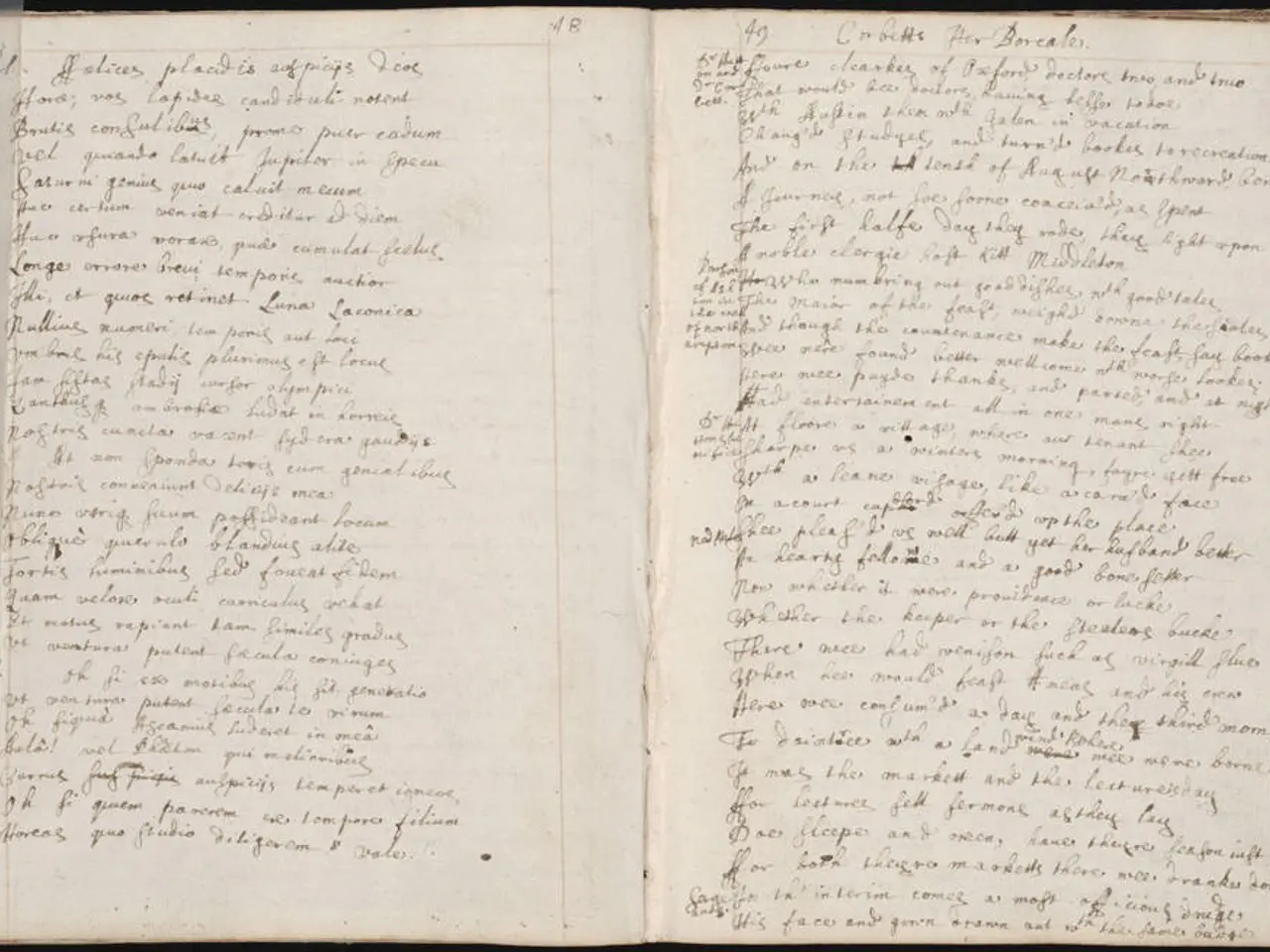Strategies for Applying Literary Analysis Techniques in IB English Compositions: Enhance Complexity with Various Perspectives
In the realm of International Baccalaureate (IB) English, literary theory can serve as a powerful tool to deepen analysis and elevate essays. To effectively apply these critical frameworks, such as Marxist, Feminist, Postcolonial, Psychoanalytic, and Reader-Response approaches, here are some key strategies:
- Understand the theory: Before delving into a literary work, familiarise yourself with the theory's key concepts and interpretative methods. This foundation will enable you to apply the theory with precision and insight.
- Engage with the text: Careful and detailed reading is essential. Identify language, structure, themes, and character development within the text that resonate with the chosen theory.
- Go beyond surface-level analysis: Utilise literary theory to probe deeper meanings and underlying power structures, ideologies, cultural assumptions, or psychological motivations within the text.
- Formulate a clear thesis: Your thesis should integrate the theoretical perspective with your close reading, demonstrating how the theory shapes your interpretation of the text's meaning or significance.
- Balance textual evidence and theoretical insight: Support each point with specific quotations or examples from the text, then explain these through the lens of the theory, showing how the theory illuminates or problematises these elements.
- Critically evaluate the theory: Consider the theory's limitations or biases and how it interacts with alternative interpretations, showcasing higher-order evaluative thinking expected by IB assessors.
- Tailor your approach: For Paper 1, focus on identifying techniques and analysing their effects through a theoretical lens. For Paper 2, apply the same theory across texts to build comparative arguments.
- Consider audience and purpose: Awareness of the audience's expectations and the context of the text can deepen nuanced analysis linked to theory.
It's important to note that while theory is not officially required in the HL Essay, it can add depth and make the essay more evaluative and original. Reviewing sample essays that successfully integrate theory can help model structure and tone.
When it comes to practice, using theory cheat-sheets, developing Lines of Inquiry (LOIs) that naturally align with a theoretical lens, and writing short paragraphs applying theory to a passage or quote are all effective strategies. Picking a theory that aligns with the LOI and enhances the analysis is also crucial.
Using more than one theory can be beneficial, but they should work together smoothly. Remember, a brief mention of a theory is enough; focus more on how the theory helps analyse the text. Literary theory can deepen a LOI in IB English, particularly at the Higher Level (HL).
In brief, literary theory can guide focused, critical analysis in IB English essays, enhancing the depth and originality of your work. By integrating precise, theory-informed interpretations with textual evidence, crafting a nuanced thesis, and demonstrating critical evaluation consistent with IB’s high analytic standards, you can elevate your essays to new heights.
'Engaging in education-and-self-development through the lens of literary theory can deepen your learning and analysis in IB English, as it provides you with tools to probe deeper meanings within texts.'
'Using literary theory in your essays can help elevate your arguments, making them more evaluative and original, especially at the Higher Level (HL), as it guides focused, critical analysis and enhances the depth of your interpretations.'




